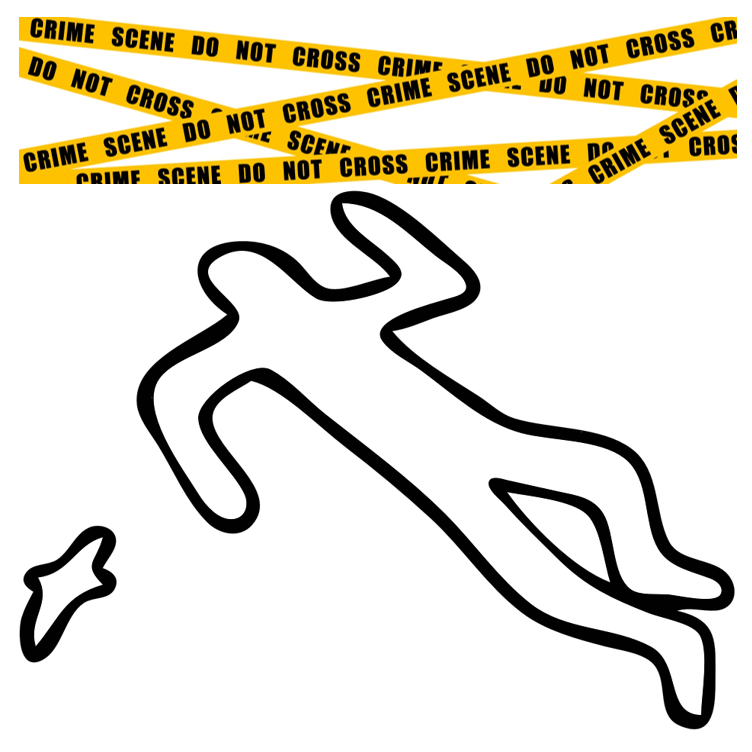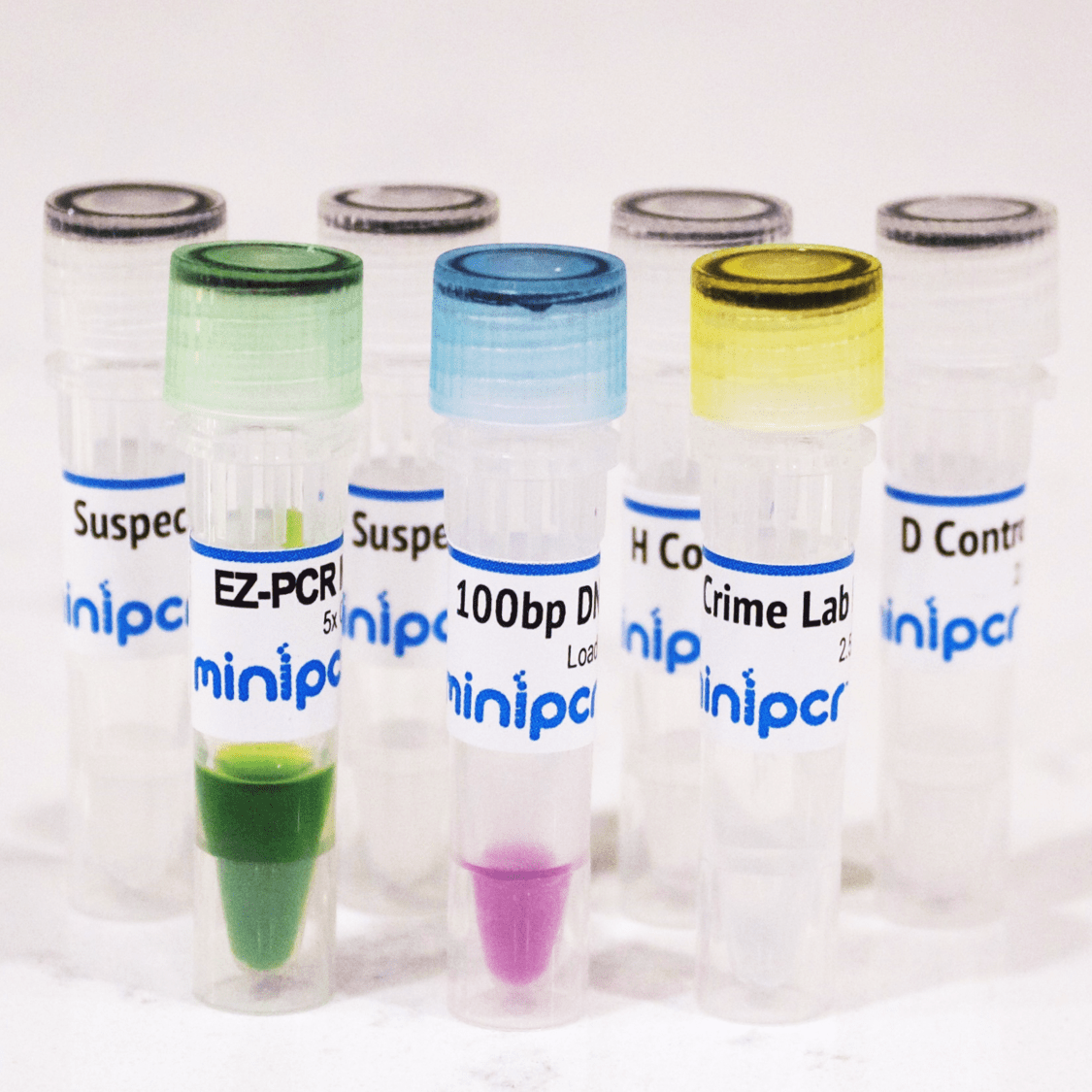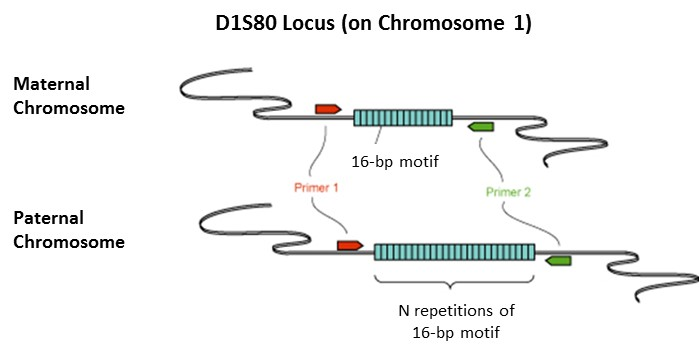In this miniPCR Learning Lab™, students will amplify
their own DNA and compare it to a sample obtained from a hypothetical
crime scene in order to try to rule themselves out as a suspect.
Students will use essential molecular biology techniques of PCR
(polymerase chain reaction), gel electrophoresis, and VNTR (variable
number tandem repeat) analysis. This lab illustrates real-world
applications of molecular biology in personal identification and
forensics and in the study of inheritance, human genetics, DNA
polymorphisms, and genetic diversity.


 Description
Description
A REALISTIC CRIME SCENE INVESTIGATION.
In this miniPCR Learning Lab™, students will amplify
their own DNA and compare it to a sample obtained from a hypothetical
crime scene in order to try to rule themselves out as a suspect.
Students will use essential molecular biology techniques of PCR
(polymerase chain reaction), gel electrophoresis, and VNTR (variable
number tandem repeat) analysis. This lab illustrates real-world
applications of molecular biology in personal identification and
forensics and in the study of inheritance, human genetics, DNA
polymorphisms, and genetic diversity.
Variable number tandem repeats (VNTRs) are regions in a genome that
contain short stretches of DNA (6 to about 100 base pairs) repeated a
number of times. The number of repeats in a particular VNTR can vary
from individual to individual, and between chromosomes within an
individual. In this way, VNTRs are one source of genetic polymorphism
(variation), and can be used as markers for personal identification as
well as in the study of inheritance, genetic diversity, population
genetics, and genetic disorders.
This lab is presented as a hypothetical crime where DNA evidence has
been collected. Included in the lab is a sample of “Crime Scene DNA”
that will be used by students to compare to their own DNA sample.
Students whose DNA does not match the “Crime Scene DNA” can rule
themselves out as suspects. It is possible that some students will match
the DNA sample provided. These students cannot rule themselves out and
are considered possible suspects.
This Learning Lab is aligned with National Standards. It utilizes the following molecular genetic techniques:
- DNA extraction from cheek cells
- PCR amplification of human genomic DNA
- DNA Gel electrophoresis, staining, and visualization
- VNTR (variable tandem number repeat) analysis
The miniPCR Forensics Lab kit contains reagents for 8 lab groups of 4 students each (32 students):
- X-Tract™ DNA extraction buffer
- 2X Blue PCR Master Mix, Load-Ready™
- D1S80 Lab Primer Mix
- “Crime Scene” DNA control sample
- 100 bp DNA ladder, Load Ready™
Please note:
Free miniPCR Learning Lab™ downloads:
If you cannot find the answer to your problem then please contact us or telephone +44 (0)1954 210 200